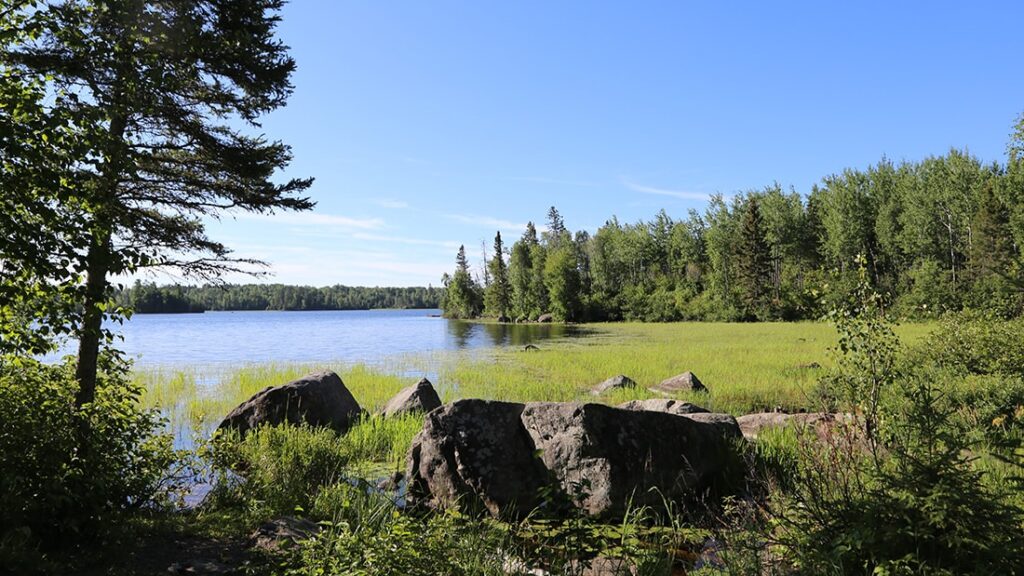
New legislation has been announced at the Minnesota state capitol, seeking to strengthen protections of the Boundary Waters from mining pollution. Chief authors Sen. Kelly Morrison and Rep. Sandra Feist seek to put legal restrictions on four specific mining practices they say represent unacceptable risk upstream of the Boundary Waters Canoe Area Wilderness.
The bill would put into law four recommendations from the Department of Natural Resources last year. It would prohibit storing post-processing leftover material (called “tailings”) in either ponds or dry stacks; storing waste rock containing sulfides that can create acid mine drainage; ore processing that uses cyanide to separate metals from other material; and using furnaces to extract metal (called “smelting”).
“Our own DNR, perhaps recognizing that our laws are inadequate, recommended that the legislature assess state policy relative to the four mining practices that are involved with sulfide-ore copper mining in their compatibility with the protection of the Boundary Waters,” said Sen. Morrison.
The Campaign to Save the Boundary Waters is supporting the legislation, with executive director Ingrid Lyons joining the lawmakers for the announcement.
“This legislation … safeguards the watershed by prohibiting four of the most dangerous features associated with copper mining and addresses concerns raised by the Minnesota Department of Natural Resources in 2023 in its Findings of Fact, Conclusions of Law and order as part of ongoing litigation,” said Ingrid Lyons, Executive Director of Northeastern Minnesotans for Wilderness, which leads the Campaign to Save the Boundary Waters.
The organization points out that the lakes of the Boundary Waters region is currently very clean, and also so pure that it doesn’t have much buffer for contamination. Save the Boundary Waters says that means any pollution would cause permanent, irreversible damage.
The Minnesota legislature convenes on Feb. 12 for its 2024 session. The primary mine proposal in the BWCAW watershed, the Twin Metals project owned by Chilean company Antofagasta PLC, has suffered a series of setbacks in the past several months, and a federal moratorium says no mining should be allowed in the area for at least 20 years. The new legislation is intended to close what advocates see as existing gap in regulations once the mining moratorium expires or other factors change.
More information:
- Bill would limit mining activities in Rainy River Watershed – Duluth News Tribune
- Biden administration bans mining in Boundary Waters watershed for 20 years – Quetico Superior Wilderness News

